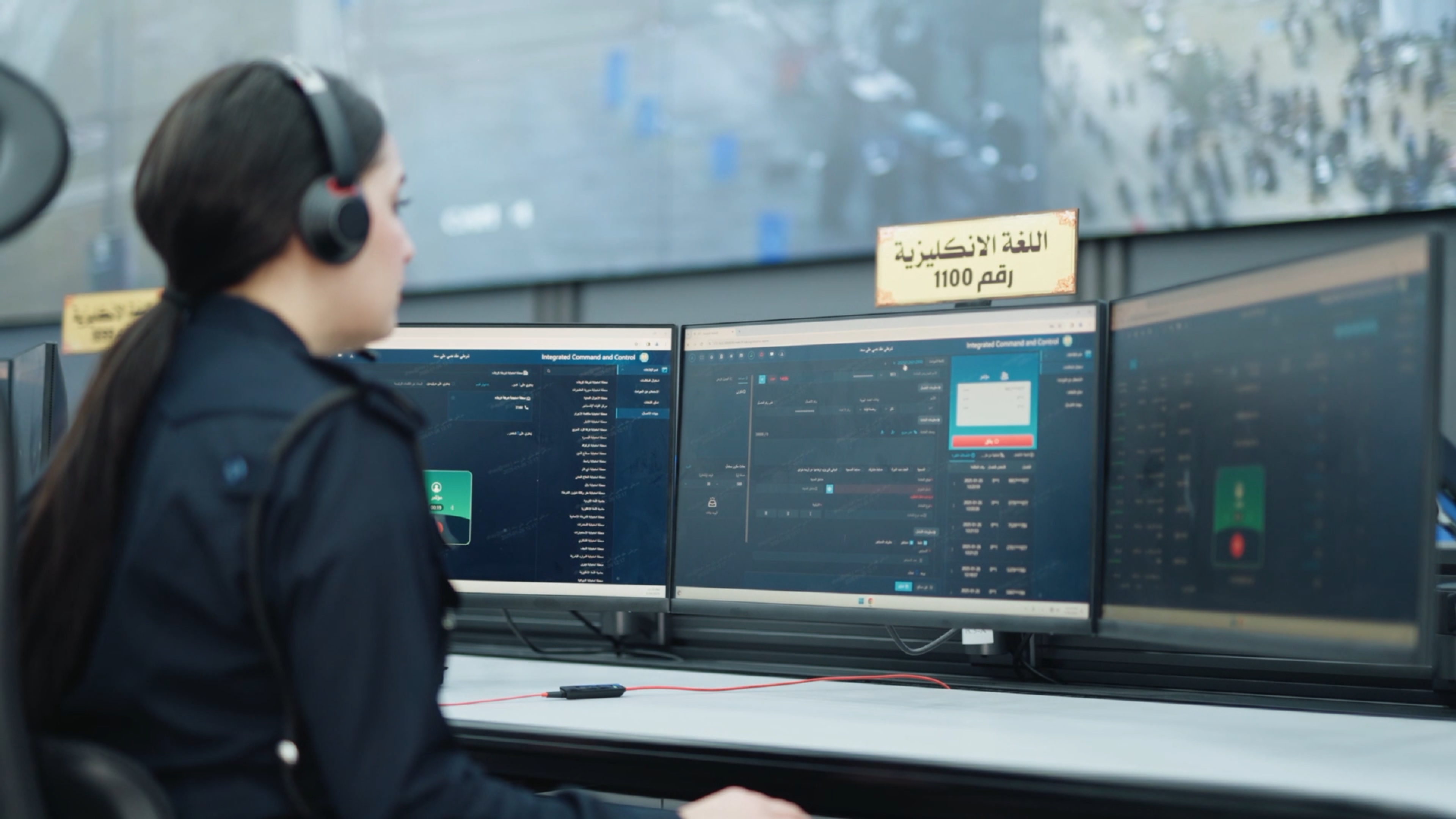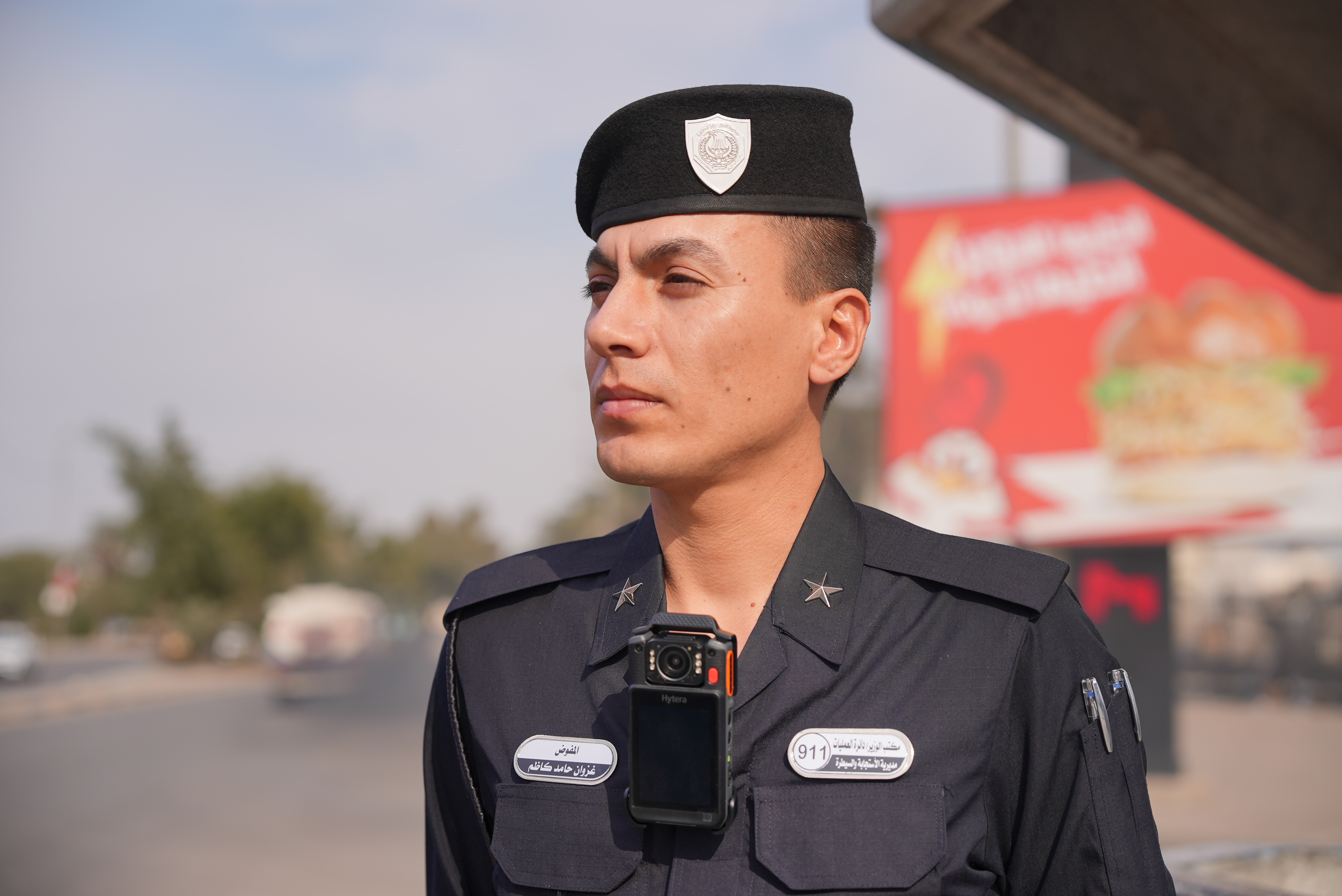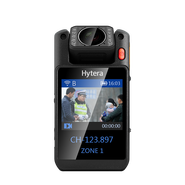
Challenge
The city of Baghdad has long faced security challenges due to political instability, terrorism, and the aftermath of the ongoing conflict in lraq. In the past, the emergency response system has been highly fragmented with as many as 26 different emergency numbers in use. This splintered approach caused delays in response times and hindered effective resource allocation.
Solutions
The Hytera 911 command and control center was chosen to integrate all the diferent emergency call requests and dispatching activities for the various types of frst responder agencies.The 911 call center features 300 operator seats, supports case intake and creation, and dispatches cases to police using DMR and TETRA two-way radio networks.

Benefits
Integration of Emergency Services
The system centralizes all emergency requests, eliminating fragmentation and improving coordination between police, fre and medical services. By combining these services into a single platform, the system reduces delays and ensures quicker responses, so citizens experience greater clarity when seeking help. This reduces confusion and streamlines coordination across services.
Improved Effciency in Resource Allocation
The system provides dispatchers with real-time visibility of available resources, enabling them to assian the appropriate personnel, vehicles or units to an emergency, The integration of DMR and TETRA networks allows for seamless communication and eliminates compatibility issues, ensuring an efhcient allocation of resources.
Faster Response Times
The system allows for the immediate intake of emergency calls and the automatic generation of case numbers and fles. Dispatchers can quickly locate callers and allocate resources, signifcantly reducing response times, and helping to save lives.The integration with CCTV and body camera systems further accelerates the decision-making process by providing real-time visuals of the incident.
Enhanced Situational Awareness
The integration with CCTV and body cameras provides a comprehensive, real-time view of incidents, empowering authorities to make informed decisions based on live video feeds and statistical analysis.
Data-Driven Decision Making
The system's ability to record calls and analyze trends helps the Ministry of Interior continually assess and improve the effectiveness of the emergency response. This data-driven approach ensures the system adapts to evolving needs and challenges.
Increased Trust in Authorities
The implementation of a reliable emergency system can help build public confdence in law enforcement and other emergency services. lt offers a greater sense of security encouraging citizens to report crimes or safety concerns, which strengthens community cooperation.
Economic and Social Benefts
Improved safety and stability can create an environment conducive to economic growth. Citizens will feel more secure engaging in public life and business.stimulating local economies and fostering societal development.


